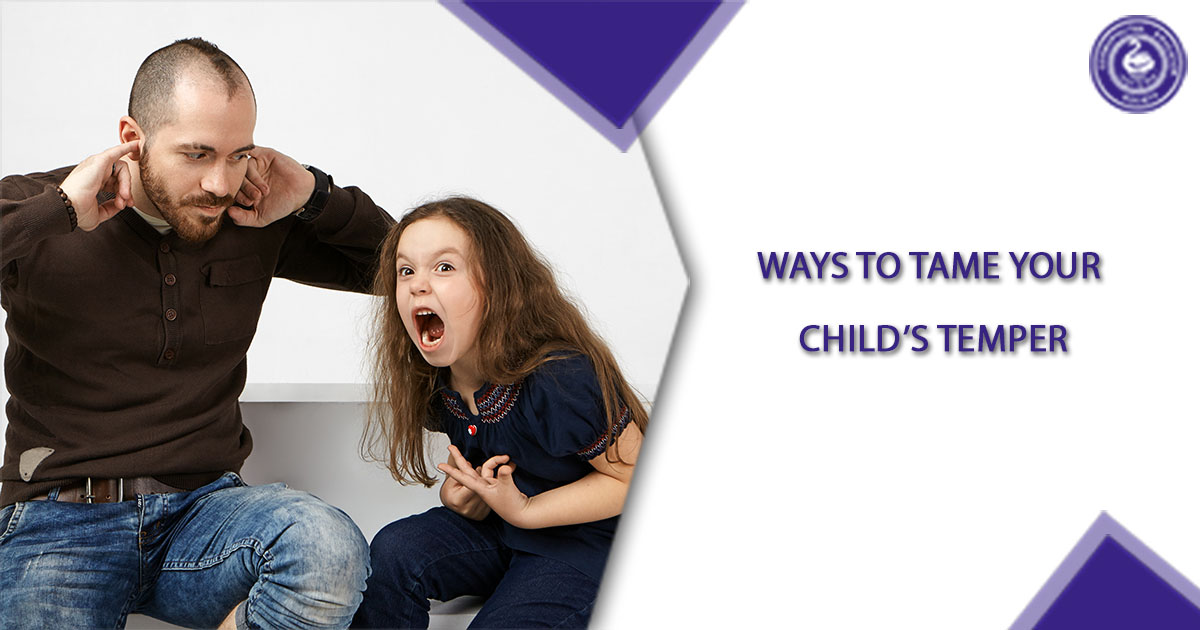
Ways To Tame Your Child’s Temper
Anger is a natural emotion that not only children but adults also experience. It could be occasionally or a habit. But if you find your child becoming angry frequently, you might want to try one of these anger management tactics to tame it.
Not only hormonal changes in the young but also low self-esteem, and fear of voicing their feelings make it difficult for teenagers to manage their anger. It is evident that most kids learn to control their anger with time, others may continue to struggle with anger management due to underlying anxiety, depression, or other common mental health disorders.
Anger Management Techniques
If you’re frequently angry and have trouble controlling your emotions, you can benefit from these anger management tactics.
Technique 1: Ask Why?
The feeling of anger can arise even if you’re not furious at a specific person or situation. For example, you must have heard someone say “I am Hangry”. This basically refers to the unpleasant feeling of being hungry. Being distinct emotions, Anxiety, despair, exhaustion, and fear can all feel extremely disturbing at times.
We advise you to take out a few minutes to figure out what is making you furious. Ask your little one these basic questions to start with.
1. Have you had your meal/snack?
2. Did you have a good night sleep?
3. Are you concerned about a pending exam/project?
4. Is the current situation causing you to be furious?
Key Takeaway: Knowledge is really powerful in managing anger efficiently. This is because being aware of what your little one is really feeling can help you figure out what you need to do to help them.
Technique 2: Help Them Practice Calming Down Techniques
If you have noticed, in most cases anger causes people/kids to clench their fists, grind their teeth, or tighten their muscles. Hence, it is extremely critical to understand how important physical relaxation can help you calm down your child’s tight nerves. This can be accomplished in a variety of ways. Try getting your child to meditate as it can be done at any time and in any location. The best way to start off is you doing it with them, they watch and learn faster.
Key Takeaway: You’ll have better control over your emotions if you relax your body. More strategies to relax their body and focus their thoughts include yoga, progressive muscle relaxation, and guided imagery.
Technique 3: Encourage Physical Exercise
Have you ever noticed how peaceful and relaxed you feel after a good workout? It’s exactly the same for your child. This is because Endorphins i.e. your feel-good hormones, are released during a workout. Its a proven fact that if you exercise daily you will be physically and mentally healthier. You’ll notice their moods being uplifted, additionally helping them to sleep better, decreasing anxiety levels. All these things together can help your baby feel less irritable and angry.
Key Takeaway: We advise leaving your children to run around a park, or play their favourite outdoor sport.
Technique 4: Listen To Music
Studies show that music not only can calm your tight nerves but also heals you emotionally. it helps adults and children to relax and motivate them for further activities. Find the right music i.e. tempo which will help them to calm down. To some calming classical music helps to some country music works.
Key Takeaway: Experiment with different music to find what helps them feel better, and construct a playlist or two for when they are annoyed or agitated.
Summing up:
When it comes to anger management, there is no right or wrong formula, find what works for your child and stay put with it. You don’t have to apply all of the above-mentioned anger management techniques, only those that work well should be used.
ALL THE BEST!
